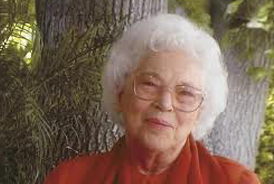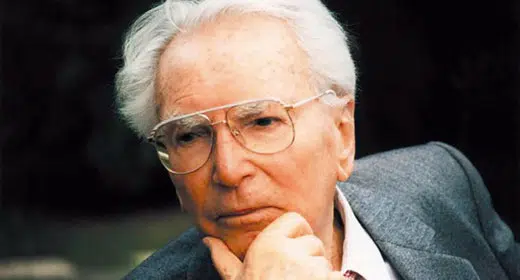by Daya Mata: Many in the world today are filled with tension and insecurity. This is because man has not learned the teaching of Christ: “All they that take the sword shall perish with the sword.”  When to attain its ends, self-centeredness resorts to the sword of aggressive behavior, destruction is the inevitable result of that conflict. In other words, so long as we think—as we have for centuries—that the way to success, happiness, and freedom is through indulging our lower nature and fighting anyone who gets in our way, so long we will never know peace of mind. Negative feelings and attitudes—selfishness, hatred, greed, prejudice, worldliness—create tension within the individual; and, on a universal scale, result in war. Here are a few practical ideas that can benefit all of us, on how to avoid tensions.
When to attain its ends, self-centeredness resorts to the sword of aggressive behavior, destruction is the inevitable result of that conflict. In other words, so long as we think—as we have for centuries—that the way to success, happiness, and freedom is through indulging our lower nature and fighting anyone who gets in our way, so long we will never know peace of mind. Negative feelings and attitudes—selfishness, hatred, greed, prejudice, worldliness—create tension within the individual; and, on a universal scale, result in war. Here are a few practical ideas that can benefit all of us, on how to avoid tensions.
Keep the mind calm through practice of meditation
“Keep the mind calm through practice of meditation.” When we become tense, we are excitable. Our thinking is too fast. We lose the natural harmonious relationship between mind and body. We know that all our physical responses originate in the mind, so to overcome tension we must first bring the mind under control. When we learn to calm the mind, we can calm the body. That is one reason why there is such a great interest in meditation throughout the world today. The value of the Hong-Sau technique of our Gurudeva Paramahansa Yogananda is its remarkable effectiveness in calming the mind. I encourage all of you to practice it regularly; I never miss it. Whenever I have a few spare moments in my room, or when waiting for people, I practice this technique. By doing so, one arrives at a wonderful state of inner peace.
Think one thought at a time
“Think one thought at a time.” When too many thoughts crowd in on us, pressure begins to build up inside. Get into the habit of thinking calmly — one thought at a time.
Don’t interrupt others while they are talking
“Don’t interrupt others while they are talking. Let them complete their sentences.” We have a tendency to interrupt others when we feel under pressure. Learn to let others finish what they have to say before you respond. On the other hand, we must take this a step further and say, “Let the person who is talking not go on endlessly.” The individual who talks too much is insecure; he feels he must constantly explain his ideas and actions to others. This is not necessary. Learn to be a listener rather than a talker.
Read books that require deep concentration
“Read books that require deep concentration.” Do not read trash. Take just one or two paragraphs from a good book, such as one of Guruji’s, and read slowly. When you have finished, ask yourself if you have understood. If not, reread the passage until you feel you have completely grasped its meaning. Then go on to the next thought.
Learn to eat slowly
“Learn to eat slowly.” Gulping down food is an expression of nervous tension. Scientists say that we should chew our food more, even liquid foods. Additionally, Guruji discouraged talking at the table, because it distracts you from concentrating on what you are eating; and this in turn inhibits the proper functioning of the life force that is responsible for digesting and assimilating the food. So learn to eat more slowly, and in silence. Another advantage is that the more slowly and thoughtfully you eat, the less food you require. When you eat quickly and absentmindedly, you gulp it down and cannot wait to get more into your mouth. And that, if it goes to an extreme, becomes compulsive eating—all the result of tension.
Exercise regularly
“Exercise regularly.” Master was an avid advocate of this. Every night at Encinitas, no matter how late it was, Guruji took us out on the veranda, and we did our Energization Exercises with him. (…) And in addition he encouraged us to walk or run regularly. Don’t forget to combine it with the deep breathing Guruji teaches. This is especially important for those who lead a somewhat sedentary life, and therefore do not get sufficient oxygen into their lungs. (…)
Keep life simple
Keep life simple. Learn to appreciate and enjoy unsophisticated pleasures. I am happy to see so many people today getting back to that ideal. Some individuals are so full of tension and restlessness, it is impossible for them to look at the beauties of nature—a tree, or a sunset —and appreciate them.
Relax — Don’t get bogged down in little things
The next guideline to help reduce stress in our lives is one I like very much: “Relax. Don’t get bogged down in little things.” Make that one of your mottoes. When we are under tension, minor annoyances become exaggerated in our minds. Ask yourself, “Why am I getting so upset about it? Why don’t I relax?” Then just let go. You have to do it—for your own sake.
Set aside time for seclusion
“Set aside time for seclusion, when you can be alone with God and have time to think.” We all have some opportunity for that if we use our time wisely. You may feel you need two or three days, but that is not necessary. Every evening, or on the weekend, or one day a week, or for half a day a week—whatever your responsibilities permit— set aside time to be alone. Take a vow of silence for that time and do not speak; just inwardly be with God. Make whatever adjustments are necessary in your schedule. For even a short period every day, and a longer period once a week if possible, maintain silence and keep your mind with God. You will be amazed at the strength it gives you within.
Keep your mind fixed, all the time, on God’s presence
“Keep your mind fixed, all the time, on the polestar of God’s presence.” Whenever we came to Guruji with troubles, he would just say, “Keep your mind here,” pointing to the Christ-consciousness center. Some devotees might have thought, “Well, he’s not giving anything to help me.” He was, but because it was so simple, not everyone understood. Keep the mind on God; for He is the ultimate answer to all problems.
Walk in the footsteps of the Guru
And the last suggestion: “Try always, to the best of your ability, to walk in the footsteps of the Guru.” This is simple if you have a well-developed conscience. Any time emotions begin to build up and you want to lash out, all you have to do is think, “Gurudeva is watching me.” He used to say to us, “Don’t think that when this body is gone I will be away from you. I will be silently watching you.” I know that to be so. We may be able to conceal things from everyone else, but not from our Guru. So be honest before him. When we have done something wrong, let us turn to him and say, “Master, I know I have done wrong; help me.” He does not expect one hundred percent perfection, but what he does expect — and has a right to expect, if we accept him as our guru—is honesty, sincerity, and truthfulness. He demanded these from all of us who were around him. He used to say, “No matter what you have done, don’t try to conceal it from me.” In the relationship between guru and disciple, there must be complete openness of heart and mind; otherwise you limit his help. We enjoyed that relationship with Guruji. As a result, I admit, we received more scoldings than if we had been less candid with him. But we came for correction, we came to change ourselves; and his guidance was the best thing in the world for us.
Whenever you find yourself getting uptight, remind yourself, “Relax, relax. I came for God.” Remember that some day others will be doing the work we are doing now. None of us is indispensable. This is not a justification for neglecting your responsibilities, but simply a reminder that you should let go and let the mind rest in God—and then, in a more detached frame of mind, take up your duties again.
I have had some of my most wonderful experiences with the Divine Mother when there has been a lot coming at me, and I suddenly reminded myself that I would not be here forever, and inwardly let go and said, “It’s not my responsibility. I’ll do my best as long as I am here, but You are my Love.” Every time the mind goes within, I feel such a sweet response from the Divine. When you say, “I love you, my Lord,” and feel immediately the divine joy springing up within your soul, that comes from daily effort to practice the presence of God. The search for Him is so simple, but sometimes we make it difficult because we put everything else first and God last.
To sum up, to free yourself from tension:
Keep the mind calm through practice of meditation.
Think one thought at a time.
Don’t interrupt others while they are talking. Let them complete their sentences.
Read books that require deep concentration.
Learn to eat slowly, and preferably in silence.
Exercise regularly.
Relax. Don’t get bogged down in little things.
Set aside time for seclusion, when you can be alone with God and have time to think.
Keep your mind fixed, at all times, on the polestar of God’s presence.
Try always, to the best of your ability, to walk in the footsteps of the Guru.








































